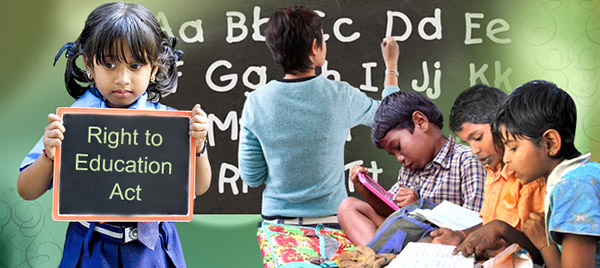 Bangalore: The State government’s decision to make the application procedure online for the 25 per cent quota under the Right To Education (RTE) has been criticised with parents and activists fearing the initiative will affect the students from poor families.
Bangalore: The State government’s decision to make the application procedure online for the 25 per cent quota under the Right To Education (RTE) has been criticised with parents and activists fearing the initiative will affect the students from poor families.
Stakeholders are weary about the initiative as a similar system implemented in Mumbai and Pune earlier this year was flayed for several lacunae. The fact that the new system has been announced without consulting parents, teachers or activists has only added to the scepticism.
According to activists, RTE seats are meant for students from poor families (who do not have access to computers) and making the system online would not work unless the government appoints facilitators for the same. Representatives of the RTE task force in Karnataka have written to the Department of Public Instruction (DPI) asking it to call a meeting of all the stakeholders. The 10-point letter has sought to know whether the department has made official communication in this regard to unaided schools or prepared any booklet explaining the procedure.
Other questions are: whether the government will conduct workshops for parents; will there be help desks to assist parents in filling the applications; will the government take action against schools that reject the application forms and whether the software for the application process is ready.
‘No transparency online’
A look into the situation prevailing in Mumbai and Pune raises concerns about the efficiency of the proposed system. Highlighting the problems of parents, child rights activist Shobha Murthy of Aarambh—a non-profit working for poor families in the slums of Mumbai—said the online system which began in mid-May in Mumbai was scrapped in June owing to several issues. “It was relaunched a few weeks later it but the problems persist,” she told Deccan Herald.
A major problem was about logging in. Parents failed to log in even after spending Rs 100 in a cyber cafe and sitting there for hours. Also, parents could neither save their application nor print it out. Once the application was filled, an SMS had to be sent with the ID registration but these SMSes never came and parents had no track of the status of their applications.
“It appeared it was deliberately made difficult so that you could not track it anywhere. What’s more shocking is that those from poor families did not have access to it but upper strata families made use of it claiming low income,” Murthy explained. In Mumbai, a Public Interest Litigation (PIL) filed by an NGO in the matter is yet to be adjudicated by the court.
A parent in Bangalore, who was able to secure admission for his child for LKG this year, said, “We don’t have a computer at home. We have to go to taluk headquarters and that is cumbersome.”
The task force has threatened to launch a protest against the proposed system if the government fails to involve the stakeholders and provide clarity on the issues raised in the letter. Task Force co-ordinator Nagasimha G Rao said, “The department does not appear to have any clarity about the matter. The system can be implemented from 2016-17 onwards.”


